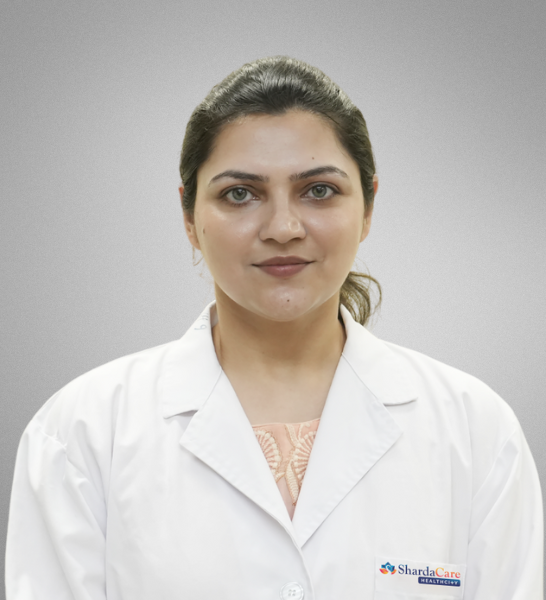
ENT Ear Nose Throat
The ENT Department at Sharda Care - Healthcity offers a comprehensive range of Medical and Surgical services for conditions affecting the Ear, Nose, Throat, Head and Neck. Our team of ENT specialists is highly skilled and utilizes state-of-the-art Equipment and Technologies to perform various procedures, including Skull Base Surgeries, Endoscopic Nasal Surgeries and Ear and Cochlear Implants.
We provide Expert Care for Patients of all Ages, Addressing a wide range of issues, including:
- Hearing and Deafness
- Deviated Septum
- Rhinitis
- Ringing in the Ears (Tinnitus)
- Sinusitis
- Nasal Obstruction
- Sinus Headaches and Migraines
- Various Cancerous Conditions
- Sleep-related disorders, such as sleep apnea, snoring, and nasal and airway obstruction
- Throat problems, including sore throat, throat tumours, GERD, hoarseness, infections, and vocal cord disorders
- Birth defects related to the head and neck
- Ear infections
- Developmental delays
- Airway problems
- Tonsil and adenoid infections
- Asthma and allergy
Looking for an Expert
Sharda Care The Healthcity is home to some of the eminent Doctors in the world.
Book an AppointmentOur Medical Experts
Sub Specialties
Frequently Ask Questions
Heart disease can develop due to several factors like high blood pressure, high cholesterol, smoking, diabetes, obesity, lack of physical activity, stress, and family history. Lifestyle habits play a major role.
Chest pain or discomfort, shortness of breath, pain in the arms, jaw, neck or back, cold sweat, nausea, and lightheadedness can be signs of a heart attack. Immediate medical attention is crucial.
Symptoms include fatigue, chest pain, irregular heartbeat, shortness of breath, and swelling in the legs or abdomen. However, some heart conditions may not show clear signs initially.
Yes, many forms of heart disease are preventable with a heart-healthy lifestyle—balanced diet, regular exercise, avoiding tobacco, managing stress, and keeping conditions like hypertension and diabetes under control.
In some cases, yes. With early detection and intensive lifestyle changes—combined with medication—certain types of heart disease can be managed and even improved.
Stay active, eat a nutritious diet, maintain a healthy weight, quit smoking, reduce salt and sugar intake, and get regular health check-ups. Managing cholesterol and blood pressure is key.
Cardiologists treat conditions like Coronary Artery Disease, Heart Failure, Arrhythmia, Valve Disorders, Congenital Heart Defects, High Blood Pressure, and more.
Treatment can range from lifestyle changes and medication to advanced procedures like Angioplasty, Stent Placement, Pacemaker Implantation, and even Heart Surgery.
While cardiologists diagnose and treat heart issues, heart surgeries are performed by Cardiothoracic or Cardiac Surgeons. However, Interventional Cardiologists do perform minimally invasive procedures.
They specialize in procedures like angioplasty, stenting, catheter-based diagnostics, and treatments that don’t require open-heart surgery.
With medical advancements, the average life expectancy after a heart transplant is 10 to 15 years, though many live longer with proper care and follow-up.
Absolutely. Routine heart check-ups help detect silent risk factors early. Prevention is always better than cure—especially when it comes to your heart.
At Sharda Care - Healthcity, our cardiology team offers compassionate care backed by cutting-edge technology, experienced specialists, and a patient-first approach—right here in Delhi-NCR.


















